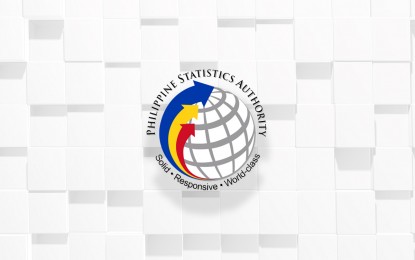
DAVAO CITY – Some 1.2 million poor households in Davao Region will be enrolled in the Philippine Identification System (Philsys), a Philippine Statistics Authority in Region 11 (PSA-11) official said Tuesday.
In an interview with the Philippine News Agency, PSA-11 officer-in-charge Pepito Amoyen said originally, some 663,318 households were identified by the agency based on the Listahanan 3 of the Department of Social Welfare and Development (DSWD).
"Supposedly, it is only for the head of the households. However, we added one adult member of the family for the registration; that's why we doubled the number," Amoyen said.
Amoyen said PSA-11 rolled out the pre-registration activity on October 12, during which they collated the needed 10 demographic information of the participants.
On November 25, the PSA official said the agency will conduct the actual registration during which the validated information from the pre-registration will be processed.
To comply with coronavirus disease health protocols, Amoyen said the PSA-11 personnel will accompany the participants to the registration centers in various provinces where they will now acquire their PhilSys registration number.
"If they passed the validation and proved that all details in the information are correct, it will now be endorsed for printing. For the entire process, they will undergo registration, authentication, validation, biometric information of 10 fingers, iris scanning, and full-face scanning," he said.
Amoyen said PSA-11 agency has completed at least 12 percent out of the targeted number and that they "are hoping we could finish it in 2022 before our President finishes his term."
Republic Act No. 11055, otherwise known as the Philippine Identification System Act, aims to establish a single national identification system for all citizens and resident aliens of the Republic of the Philippines.
Signed into law by President Rodrigo Duterte in August 2018, the valid proof of identity provided by the PhilSys "shall be a means of simplifying public and private transactions and shall be a social and economic platform that promotes seamless social service delivery and strengthening of financial inclusion for both public and private services."
As a foundational digital ID system, the PhilSys aims to transform how services are delivered and accessed in the Philippines and accelerate our transition to a digital economy, including to enable presence less, paperless and cashless transactions.
“This will curtail the bureaucratic red tape. With one ID, you will no longer present other documents for you to be recognized. All functional IDs are also linked in PhilSys,” Amoyen said.
The PhilSys project emphasizes inclusive coverage, enabling access to the most vulnerable groups such as the poor, people living in geographically isolated and disadvantaged areas, indigenous peoples, and persons with disabilities, Amoyen said.
“It will enable us to move away from inefficient and expensive physical documents, processes, and credentials to the use of digital equivalents,” he added. (PNA)
